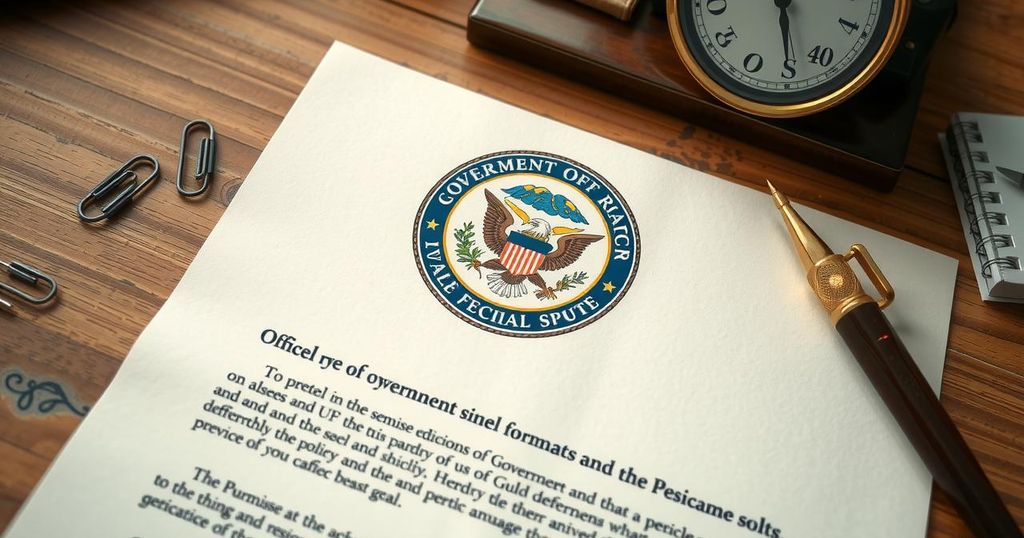Trump’s Executive Order for Major Changes to U.S. Elections
President Trump signed an executive order proposing crucial changes to the U.S. voting process, focusing on requiring proof of U.S. citizenship for voter registration and restricting mail-in ballot counting. While the order may be subject to legal challenges, it arises from Trump’s persistent claims of voter fraud, which lack substantial evidence to support them.
On Tuesday, President Donald Trump enacted an executive order aimed at significant revisions to the U.S. voting process, allegedly in response to his unfounded claims of widespread voter fraud. The order highlights the purported lack of fundamental election protections and critiques the previous administration’s focus on vetting voters’ citizenship participation in past elections. This initiative encompasses proposed modifications to voter registration, voter records, and voting systems.
Under the new executive order, individuals must provide documented proof of U.S. citizenship to register for federal elections, which include the presidency and Congressional positions. Acceptable forms of identification include U.S. passports, Real ID-compliant driver’s licenses, military IDs, and any government-issued identification from federal or state authorities.
Regarding absentee and mail-in voting, the order stipulates these ballots cannot be counted post-Election Day. While some states, including Puerto Rico and 18 others, accept mail-in ballots received after Election Day if they are postmarked on or before that date, Trump’s order seeks to restrict this practice.
States failing to comply with the specifications outlined in the executive order may face potential penalties, such as a loss of federal funding and grants. Furthermore, the Department of Government Efficiency, led by tech entrepreneur Elon Musk, is mandated to cooperate with the Department of Homeland Security on the review of state voter registration lists for maintenance activities.
It is worth noting that claims of voter fraud, as asserted by Trump, have not been substantiated by evidence. Investigations have demonstrated that instances of fraud are negligible and incapable of affecting election outcomes. Additionally, findings from Trump’s 2020 campaign suggest that there was no considerable election fraud, indicating a disconnect between the allegations made and the actual electoral circumstances following the 2020 presidential elections.
Trump’s continuity in claiming extensive voter fraud since the 2020 presidential election, despite contrary evidence presented to him, illustrates the persistent controversy surrounding election integrity in America.
In summary, President Trump’s newly signed executive order introduces substantial changes to the voting process in the United States, emphasizing stricter voter registration requirements and limitations on mail-in ballots. Although the order seeks to address perceived lapses in election security, claims of widespread voter fraud remain unsupported by evidence. The potential legal challenges to these changes, alongside the historical context of past allegations, underscore the ongoing dialogue regarding electoral integrity in the nation.
Original Source: www.forbes.com




Post Comment